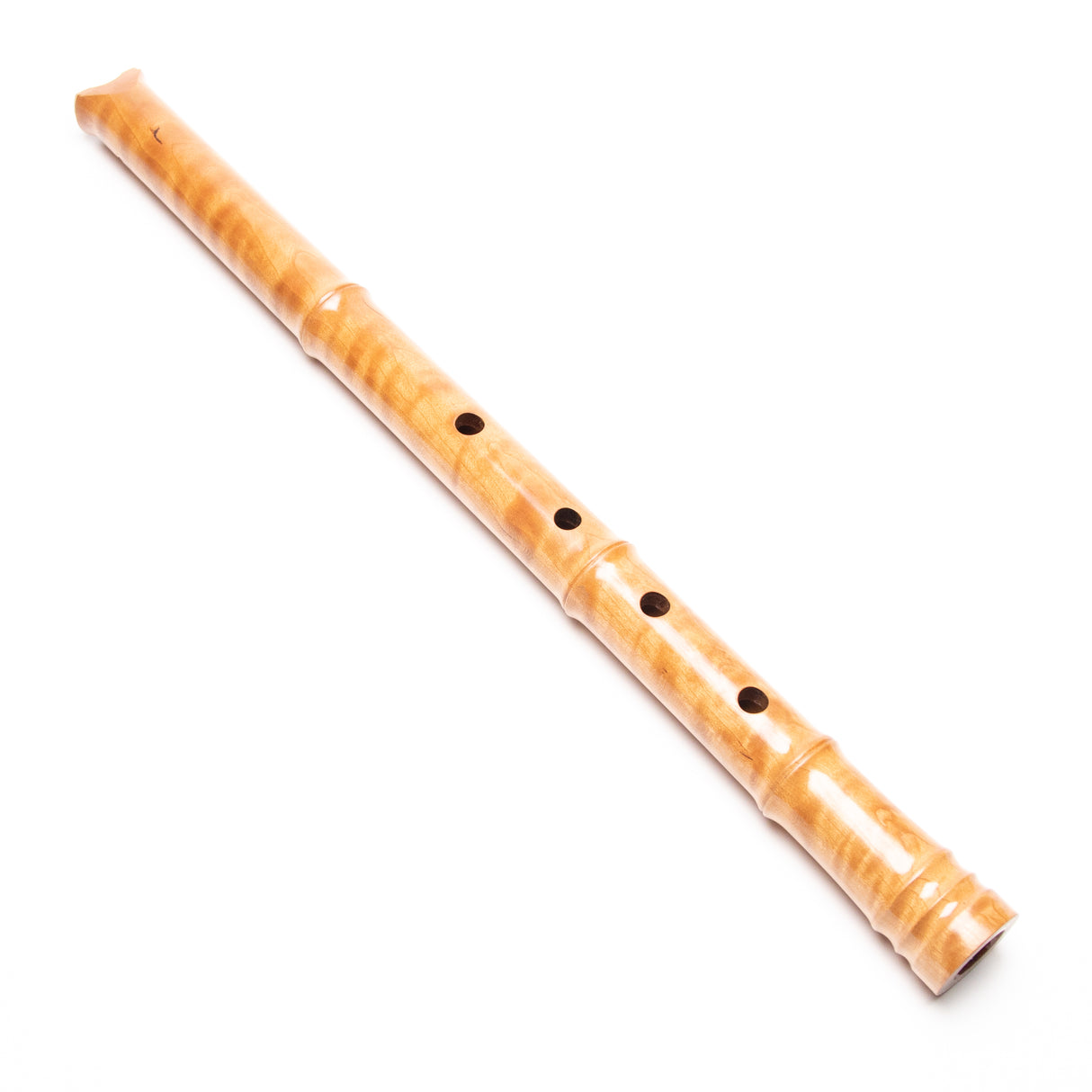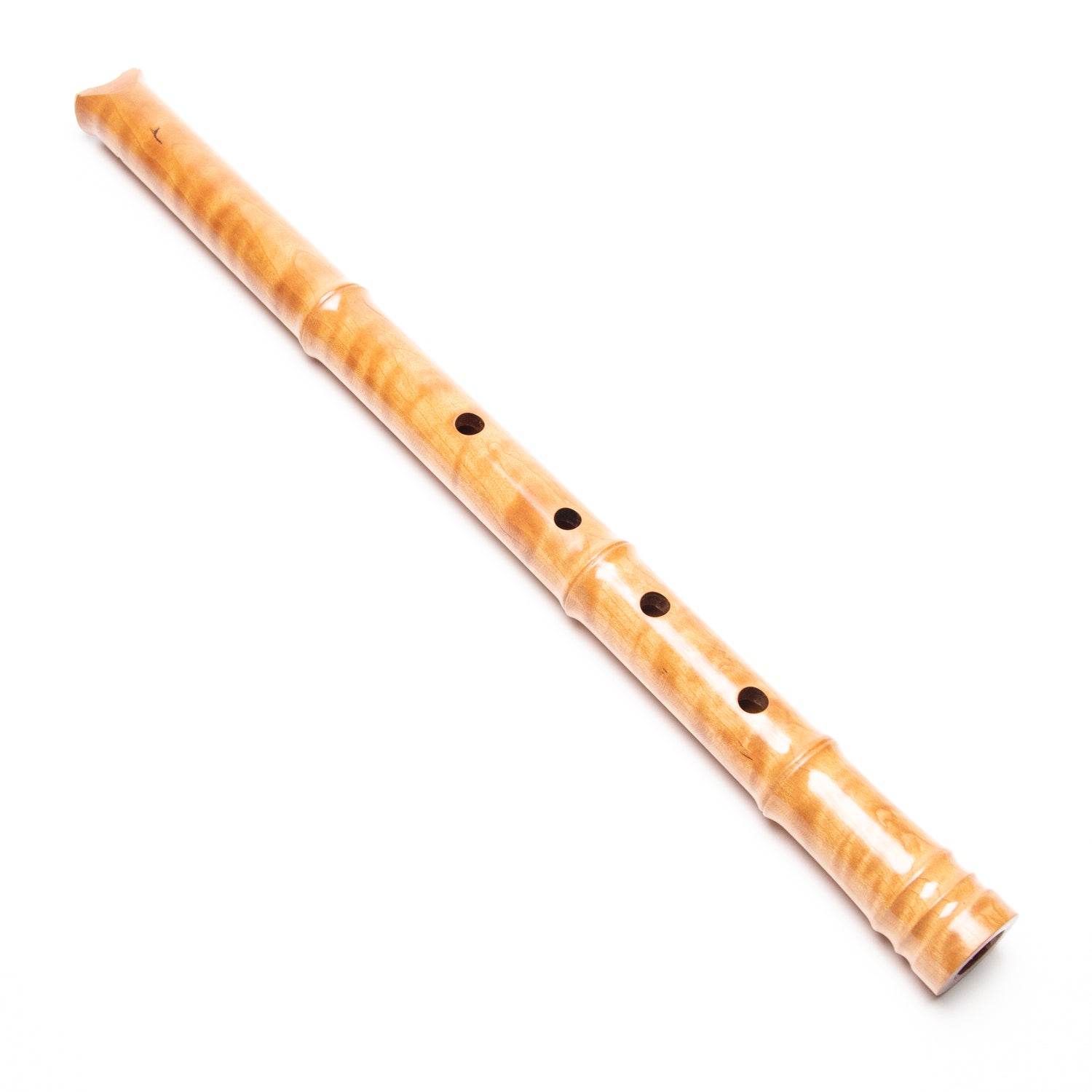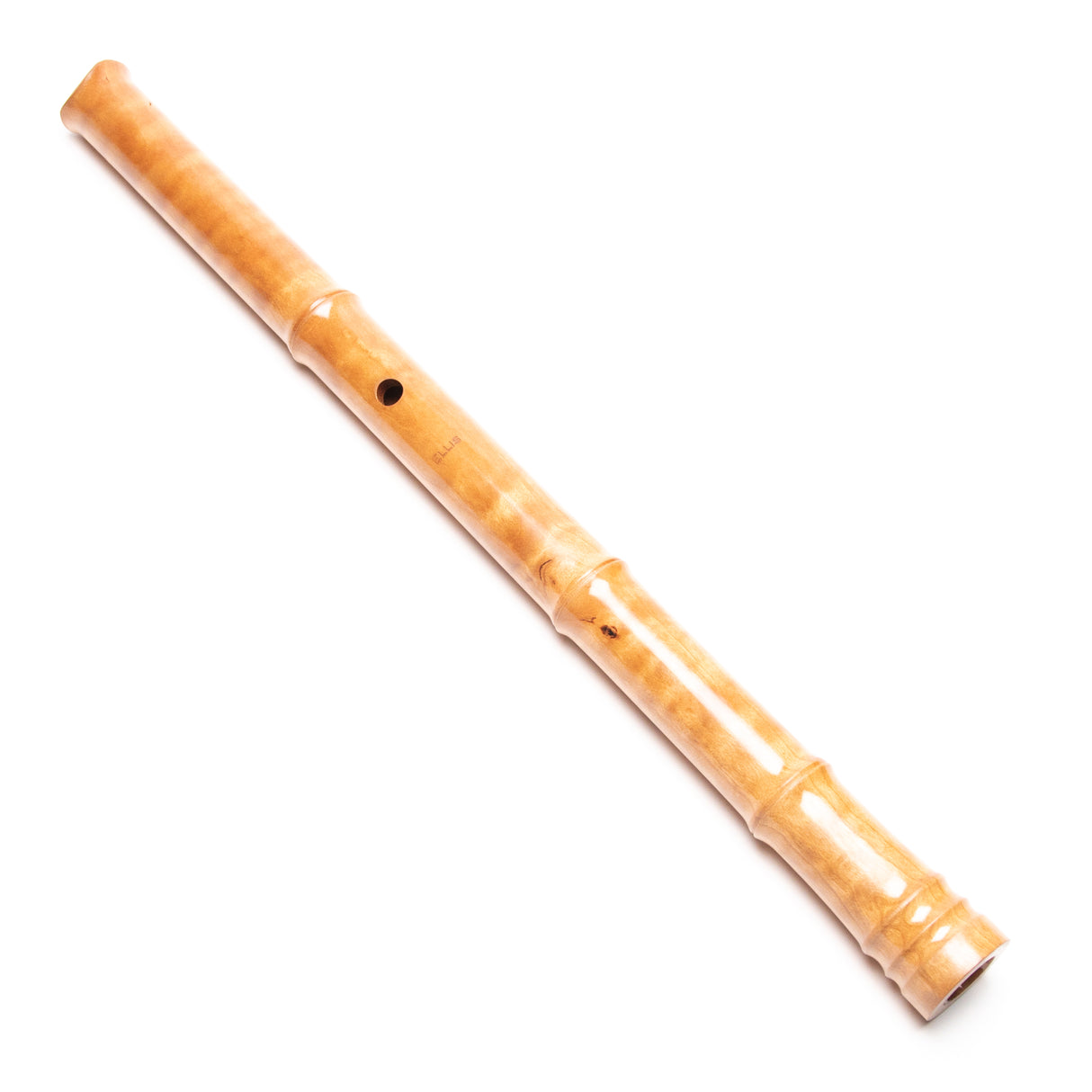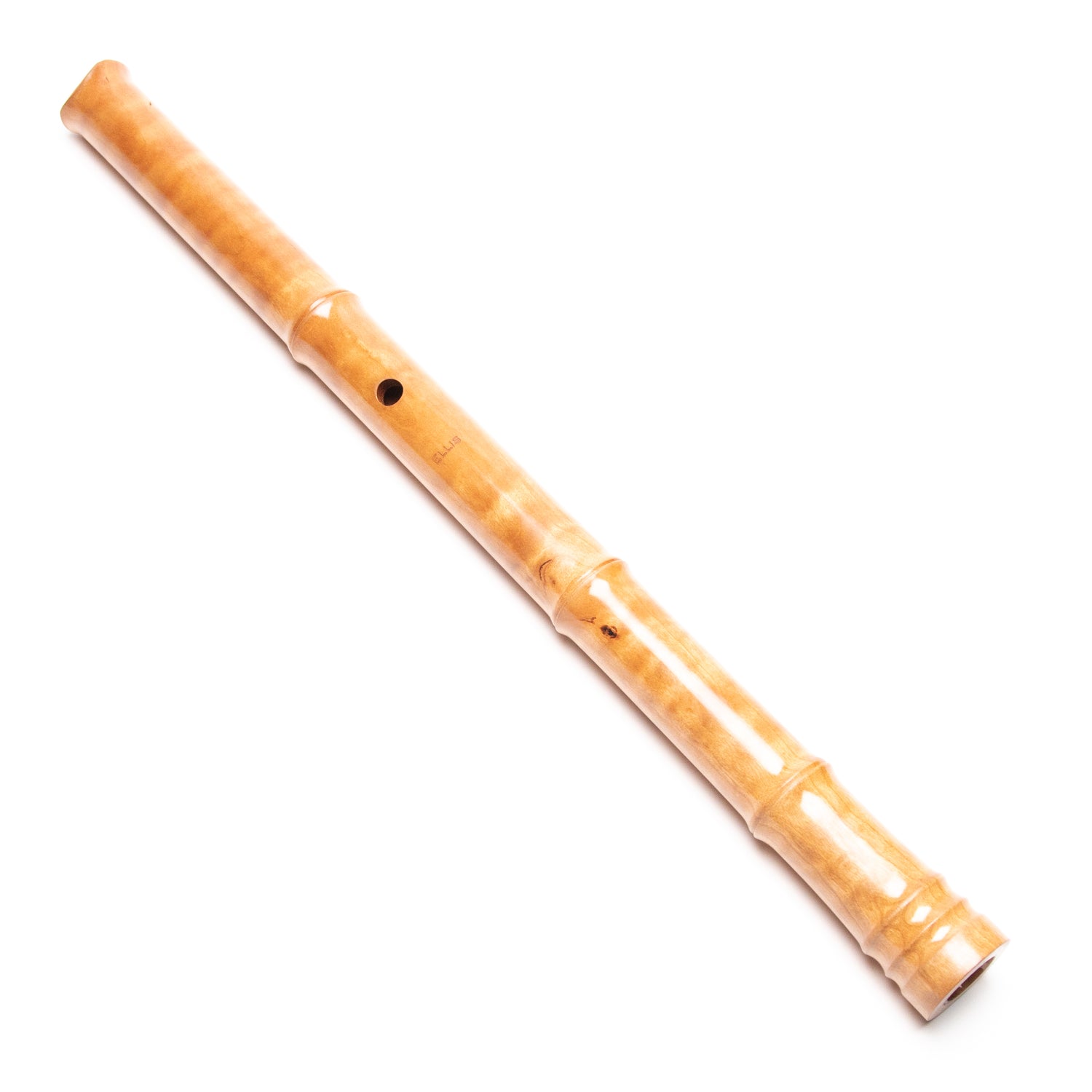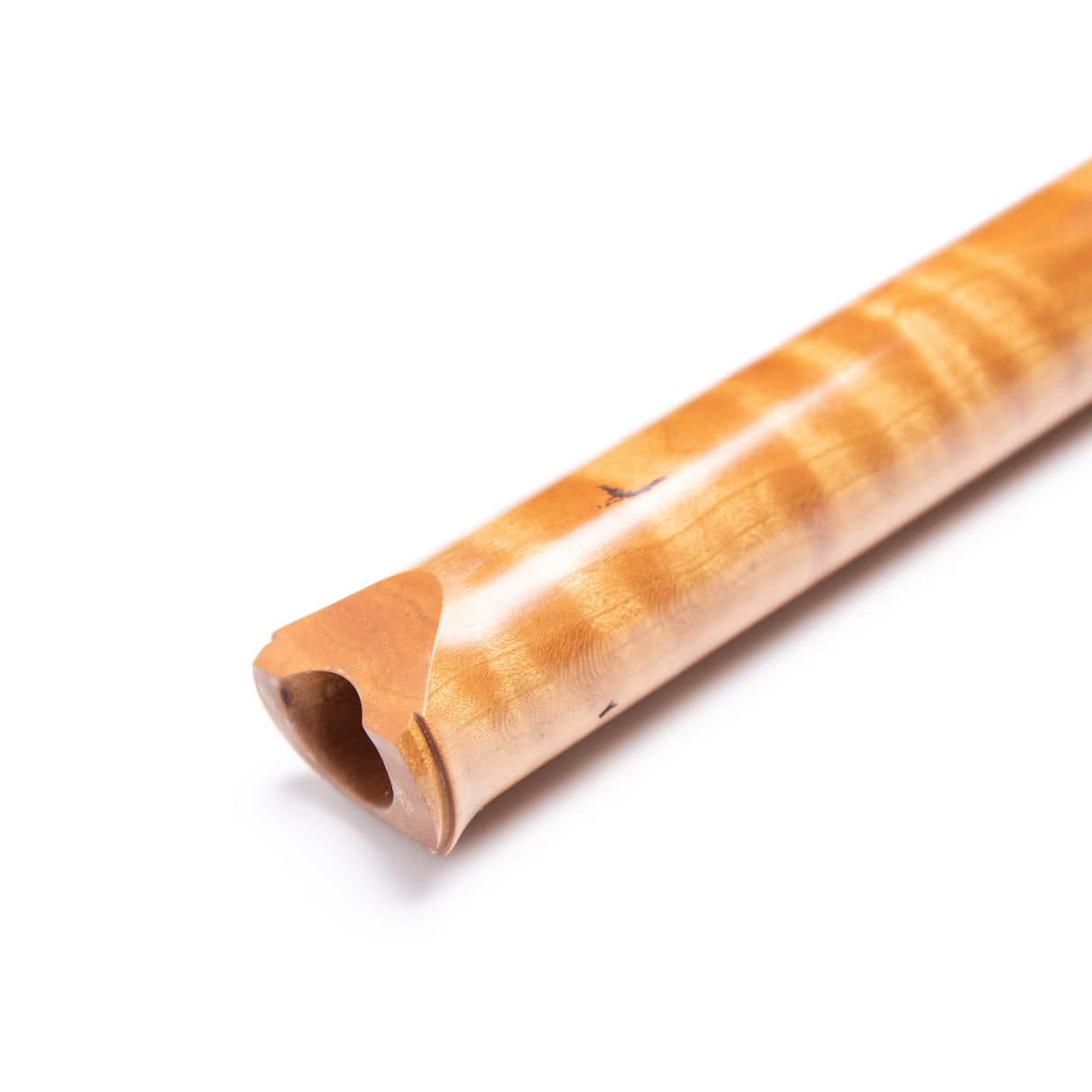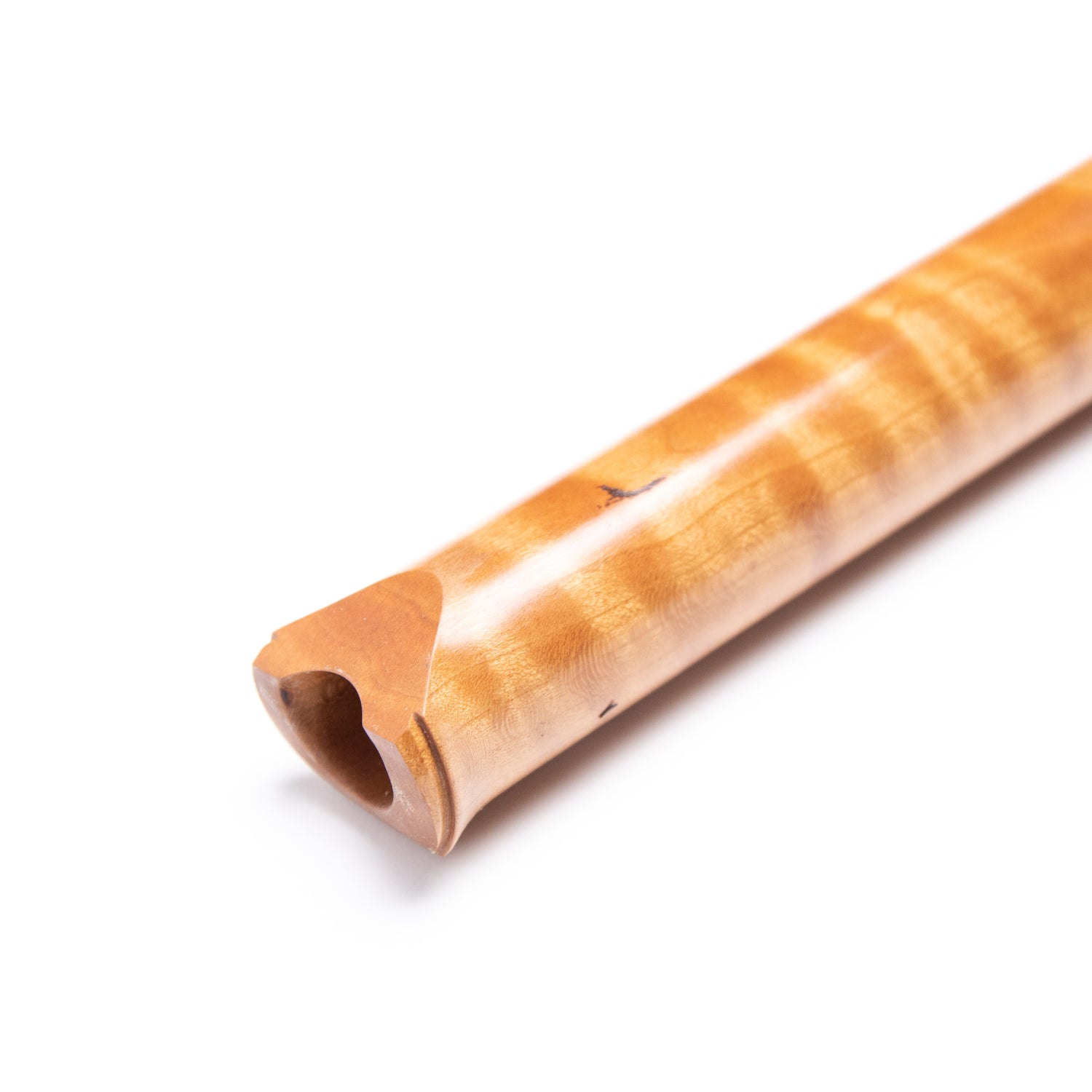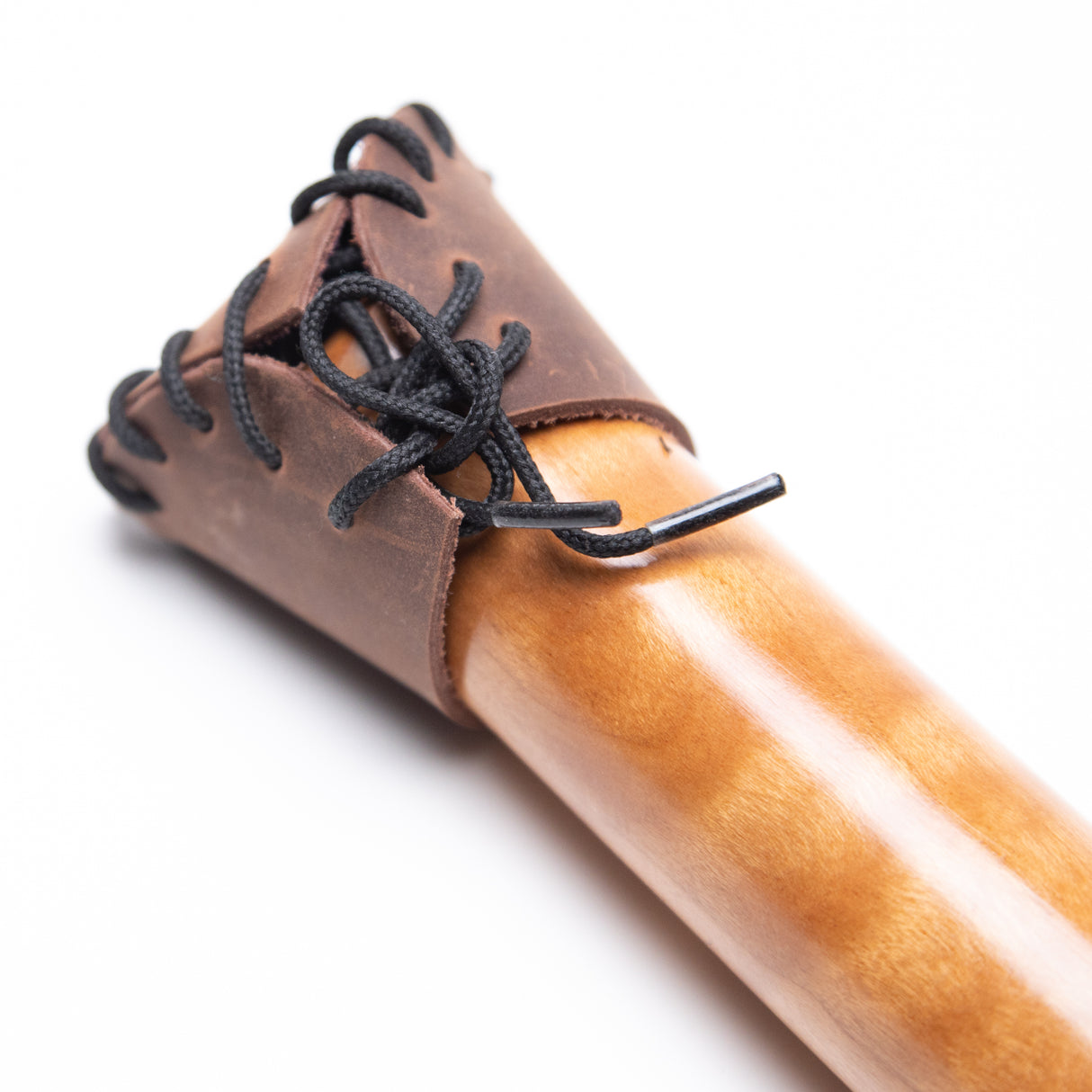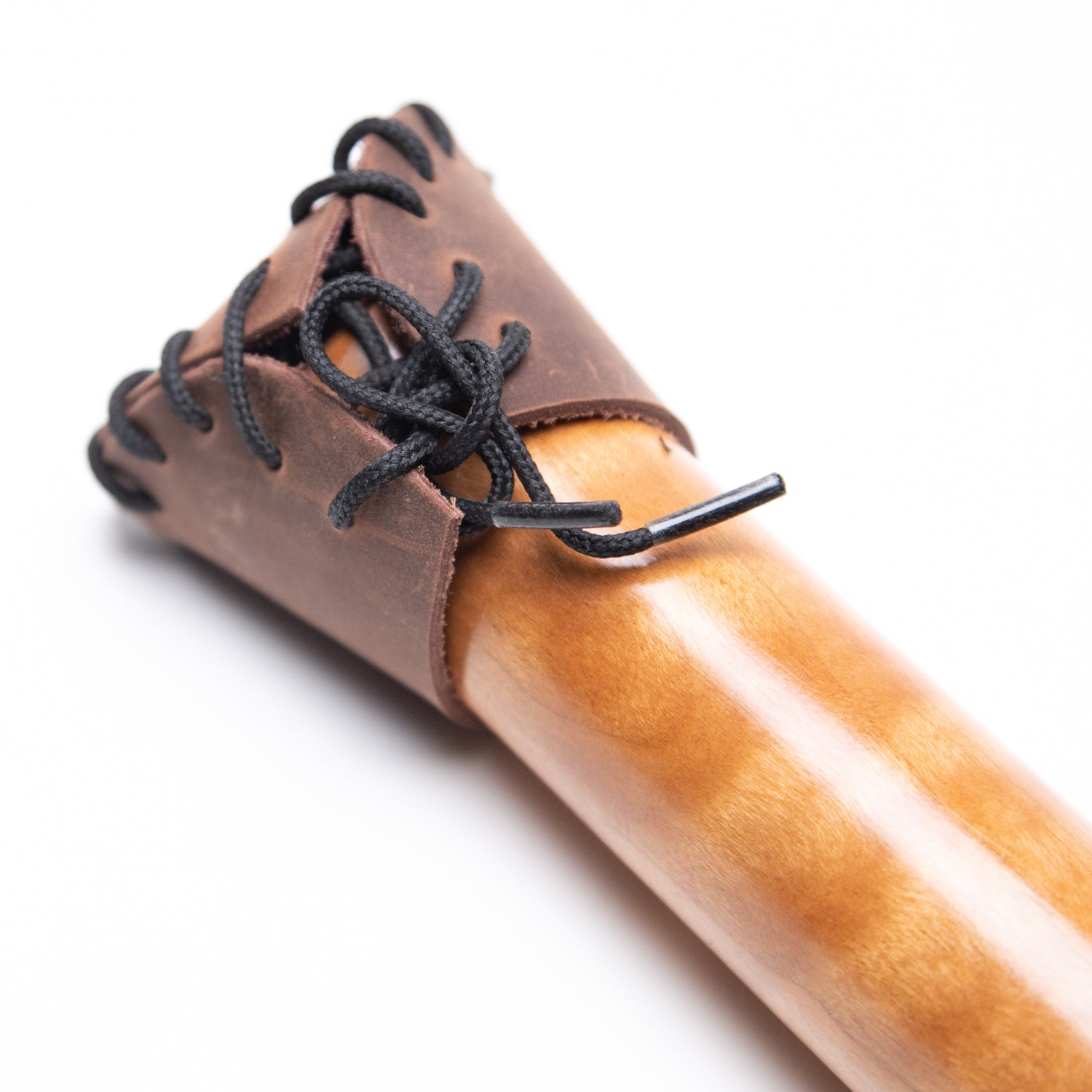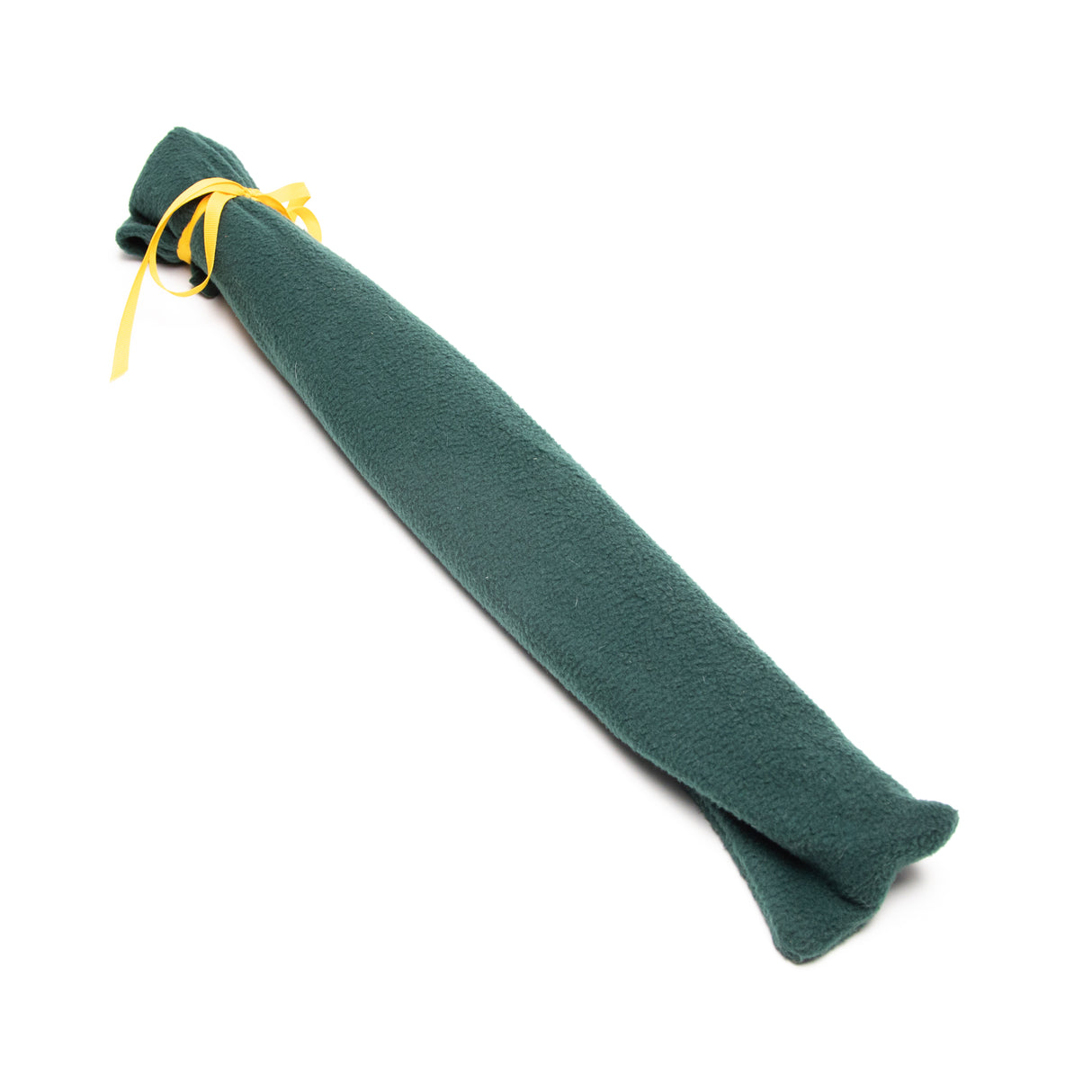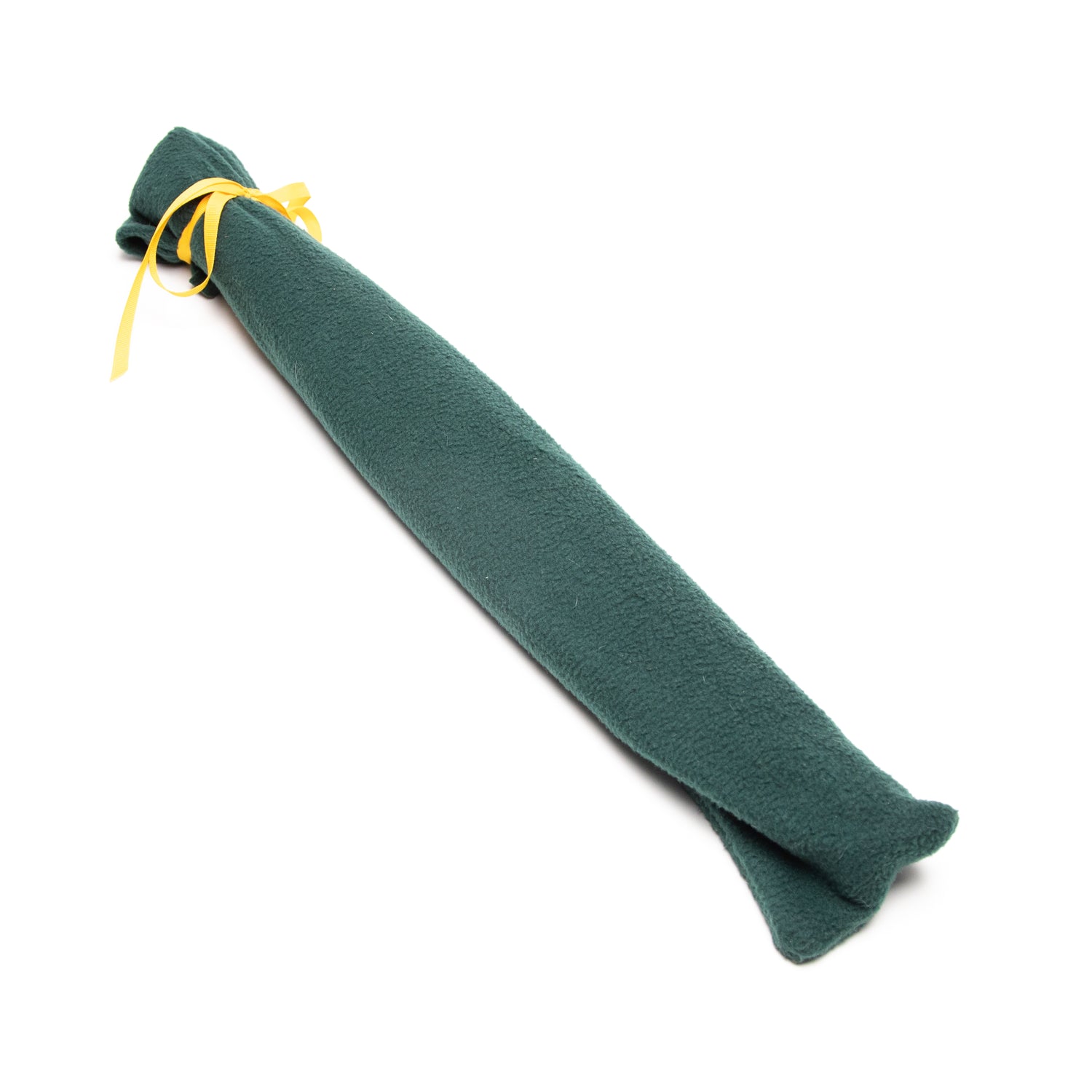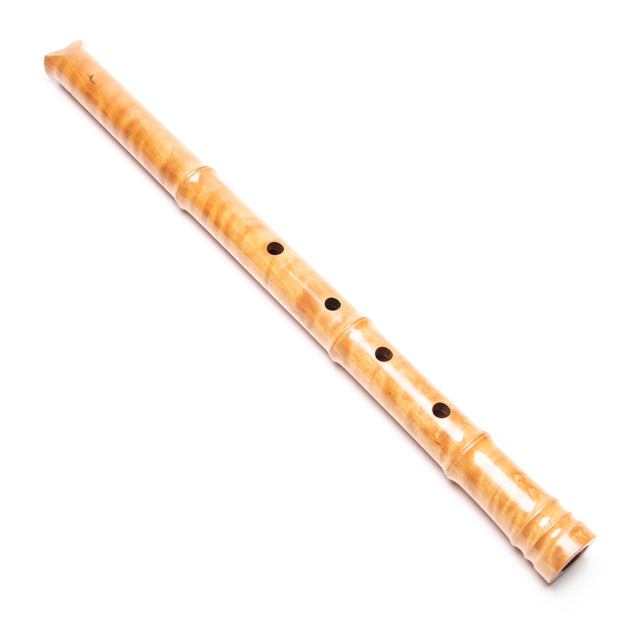Condition: Excellent
From ellisflutes.com
"The shakuhachi is a Japanese end blown flute that is normally made with 5 holes and tuned to the pentatonic minor scale. It originally came from China and is traditionally made of bamboo, but modern makers sometimes use plastic and hardwoods. It was used by the monks of the Fuke School of Zen Buddhism in the practice of suizen (blowing meditation).
There are two different types of shakuhachi: jinashi and jiari
Jinashi means “without paste” and in the context of these modern flutes indicates that the bore is “natural” and is not built up in the way that the jiari style are.
Jiari flutes have a bore profile that tapers down and flares out. With traditional, jiari-style bamboo instruments the makers used an urushi paste to shape the bore (hence the paste references) but when the flutes are made from wood this shape is created using special reamers to cut the bore profile.
A tapered bore allows for more precise upper octave tuning and a distinct type of voice. Jiari flutes are more often the choice when playing in ensemble settings but many players choose them for their character. All of my flutes are jiari-style, featuring a tapered bore profile."
Condition:
Condition: Details:

